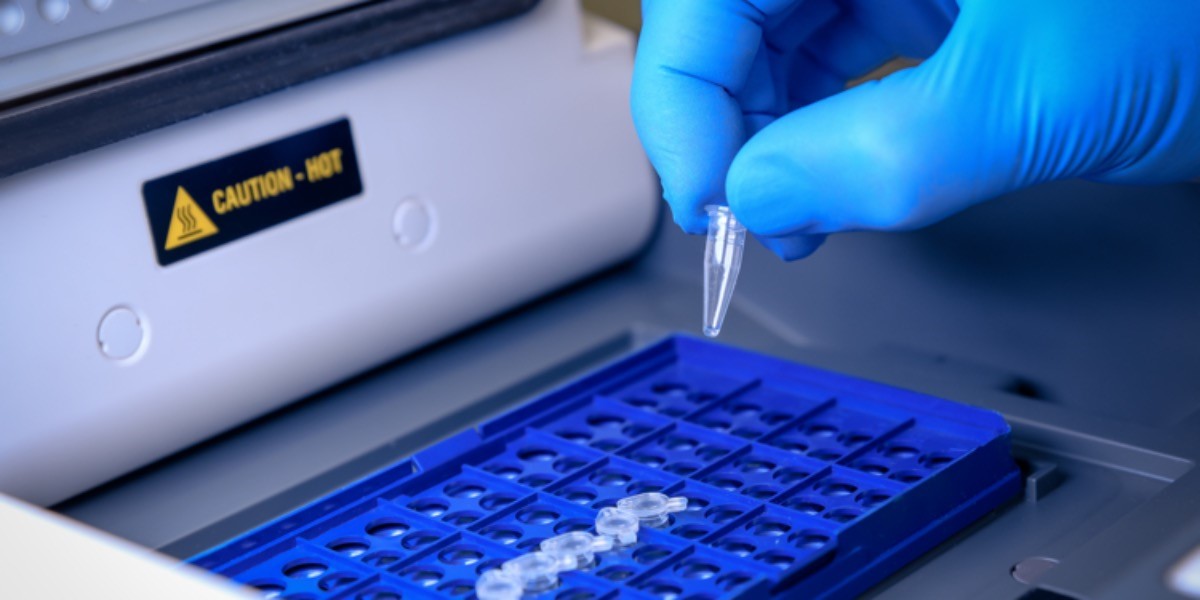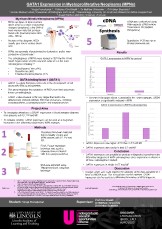By Vinuja Premakumar //
 Did you know that Myeloproliferative neoplasms (MPNs) are types of blood cancers which arise because of abnormal changes (mutations) in the DNA of bone marrow cells that produce blood cells?
Did you know that Myeloproliferative neoplasms (MPNs) are types of blood cancers which arise because of abnormal changes (mutations) in the DNA of bone marrow cells that produce blood cells?
Since MPNs are a very rare form of cancer, with roughly 1-2 in a population of 100,000 being diagnosed in a year, scientists have very limited knowledge about the scientific basis of this disease in comparison to common diseases such as diabetes.
When I submitted my UROS application in 2019, we had plans to study the difference in the expression of the GATA-1 gene in essential thrombocythemia (ET) and primary myelofibrosis (MF), two different categories of MPN. This was due to the reason that a previous study conducted at the University of Lincoln, indicated that GATA-1 expression could possibly be used as a diagnostic biomarker in the differential diagnosis of ET and MF.
Simultaneously, we were planning to collaborate with research scientists at Robert H. Lurie Comprehensive Cancer Centre at Northwestern University, Chicago. They were planning to work on immunohistochemical staining on bone marrow trephines obtained from pre-MF patients and controls studied in my project.
However, these exciting plans that we had carefully premeditated as a collaboration between the two institutions on a global level could not go ahead due to COVID-19!
Although I was fortunate enough to commence lab work in summer 2021, I was forced to tweak my title to allow me to get started meaning that I would only be researching a very small aspect of the plan that we had initially made.
However, it was difficult for us to stick to the new revised plan once we got started! I was fortunate enough to be taught the various laboratory techniques involved in the research by Dr Kristian Boasman whose PhD evaluated the expression of another gene in MPNs. This was an invaluable experience as I was able to learn how to perform various experiments and use various instruments that I would otherwise never have the opportunity to learn and use!
 Unfortunately, whilst carrying out my project, I was forced to self-isolate. After returning to the lab, we were prepped to get going but obtaining fresh blood samples from patients was difficult due to COVID-19. Therefore, we commenced work with a frozen blood sample that was obtained from a patient a few years ago.
Unfortunately, whilst carrying out my project, I was forced to self-isolate. After returning to the lab, we were prepped to get going but obtaining fresh blood samples from patients was difficult due to COVID-19. Therefore, we commenced work with a frozen blood sample that was obtained from a patient a few years ago.
This allowed me to meet my project aims and get some results to make a conclusion. However, ideally, if I had carried out the experiments on more patient samples, I would have obtained more reliable results.
Nevertheless, this research opportunity allowed me to gain invaluable laboratory experience whilst allowing me to experience the realities of working in research – not everything will work out as planned!
Having discussed my research findings with my supervisors, I am content with the project overall and can confidently say that my work has laid a foundation that can be built upon with more research and time!
*To view Vinuja’s research poster and presentation recording, please click on the thumbnails below:
